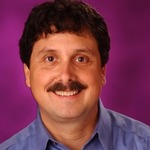The Best Way to Be an Effective Storyteller in This Digital Age
by Dan Dunlop
 The best marketers have always been accomplished storytellers, and that is still the case today. The stories they craft are meaningful and connect with the audience in a manner that meets some fundamental need – educational, informational, emotional, or entertaining. The most effective stories allow the audience members to become part of the story. Today, the health care marketer must contend with dozens of new storytelling channels, and with varying levels of control over the conversations taking place. This article looks at the ways in which the development of digital communication platforms and the rise of the connected consumer have affected the role of storytelling in health care marketing. The primary question it seeks to answer is: What does it take to be an effective storyteller in this digital age?
The best marketers have always been accomplished storytellers, and that is still the case today. The stories they craft are meaningful and connect with the audience in a manner that meets some fundamental need – educational, informational, emotional, or entertaining. The most effective stories allow the audience members to become part of the story. Today, the health care marketer must contend with dozens of new storytelling channels, and with varying levels of control over the conversations taking place. This article looks at the ways in which the development of digital communication platforms and the rise of the connected consumer have affected the role of storytelling in health care marketing. The primary question it seeks to answer is: What does it take to be an effective storyteller in this digital age?
One of the changes that digital technology has brought about is the increased role of patients and family members as storytellers. The health care marketer is now often in the role of facilitating and moderating the communication, while brand constituents, rather than professional communicators, generate the stories. Cynthia Floyd Manley, director of content strategy at Vanderbilt University Medical Center in Nashville, TN, spends much of her time either facilitating, disseminating, or crafting stories related to her organization, its patients, and its activities. According to Manley, “What the emergence of social media and digital technologies does is amplify our ability to tell our story, extend the reach of that story, and enable the more facile ‘share-ability’ of that story. More important, it changes the equation so that patients and families have the same ability to tell their story with the enormous reach that, in the past, was reserved for media companies and brands with large ad budgets.”

